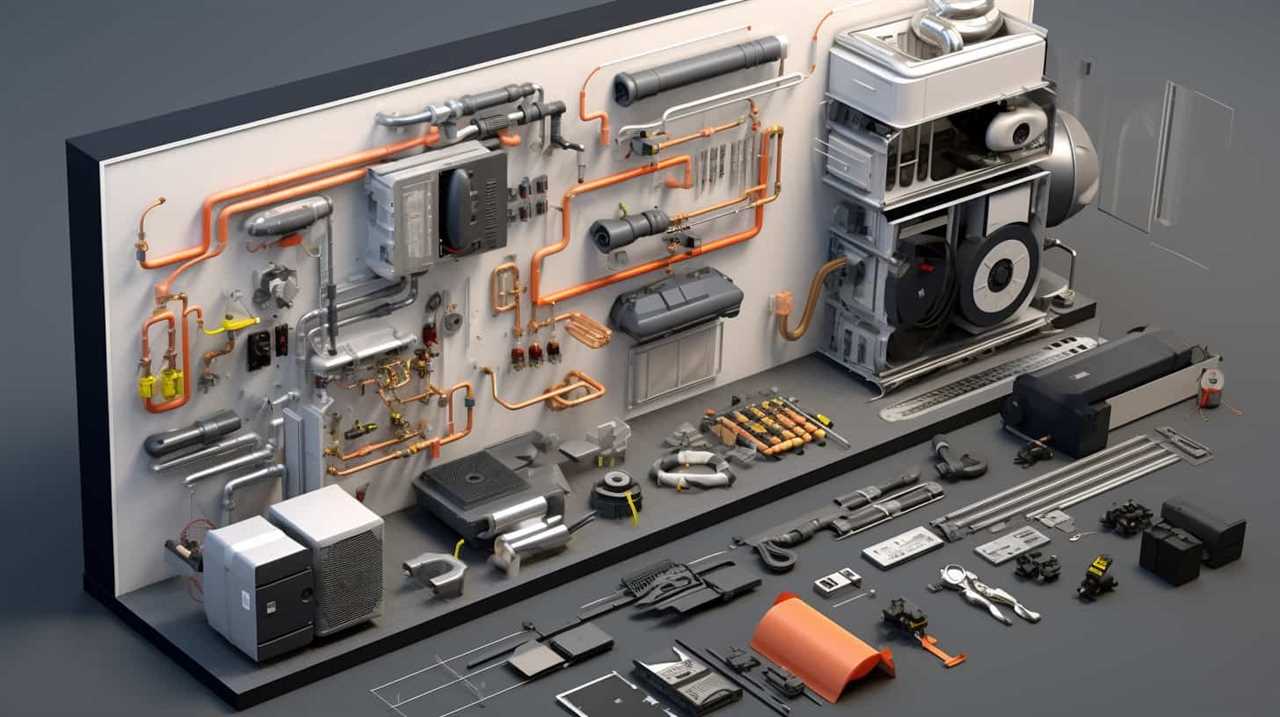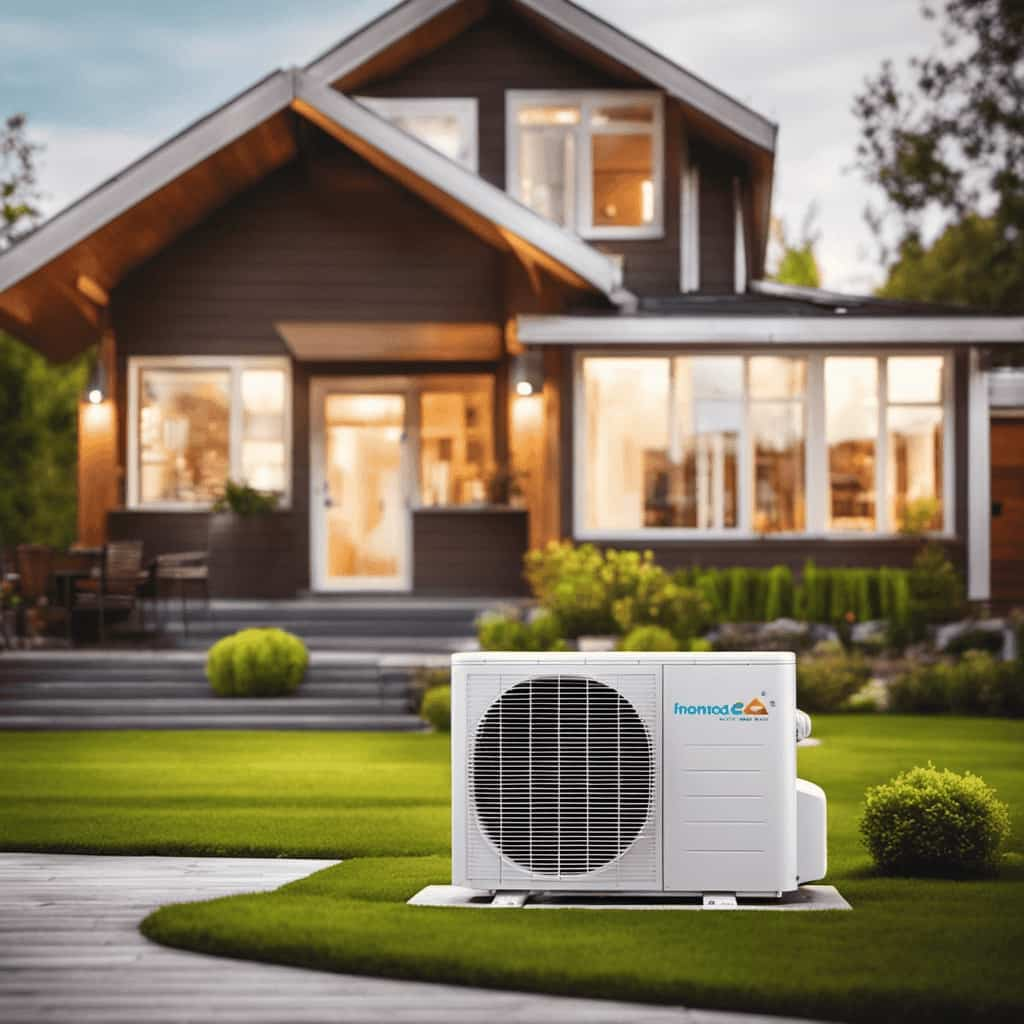Hey friends! Prepare to explore the amazing world of maintaining the perfect temperature in your home with heat pumps.
Just like a gentle breeze on a scorching summer day, heat pumps provide efficient and reliable heating and cooling for your home.
In this article, we will explore the basics of heat pumps, the different types available, and the factors to consider when choosing one.
Join us as we uncover the many benefits and troubleshoot common issues, all with the aim of serving you better.

Key Takeaways
- Heat pumps are an energy-efficient solution for both heating and cooling in residential settings.
- Professional installation and regular maintenance are important for optimal performance.
- Heat pumps offer precise temperature control and eliminate the need for separate heating and cooling systems.
- They contribute to cost savings, energy efficiency, and a greener environment by reducing energy consumption and greenhouse gas emissions.
The Basics of Heat Pumps
Let’s start by understanding the basics of heat pumps. Heat pumps are a type of HVAC system that can both heat and cool a space. They work by transferring heat from one area to another, using a refrigerant to facilitate the process. Heat pumps are commonly used in residential settings for their energy efficiency and versatility.
Heat pump installation involves several steps, including selecting the right size and type of heat pump for the space, as well as determining the optimal location for installation. It’s important to hire a professional for this task to ensure proper installation and optimal performance.
Regular heat pump maintenance is essential to keep the system running efficiently. This includes cleaning or replacing air filters, checking and cleaning the coils, and inspecting the refrigerant levels. It’s recommended to schedule annual maintenance visits with a qualified technician to prevent any potential issues and maximize the lifespan of the heat pump.
Understanding Residential Climate Control
Understanding residential climate control using heat pumps involves grasping the basics of heat pumps, the energy efficiency benefits they offer, and the cost-saving features they possess.

Heat pumps work by transferring heat from one location to another, allowing homeowners to maintain a comfortable indoor temperature throughout the year. With their ability to extract heat from the air or ground, heat pumps provide an efficient and sustainable solution for heating and cooling homes, resulting in reduced energy consumption and lower utility bills.
Heat Pump Basics
We use heat pumps in our homes to efficiently control the climate and maintain a comfortable environment. Heat pumps operate by transferring heat from one area to another, either by extracting heat from the air, ground, or water source and transferring it into the home during colder months, or by removing heat from the indoor air and transferring it outside during warmer months.
The advantages of heat pumps are their energy efficiency and versatility. Unlike traditional heating and cooling systems, heat pumps don’t generate heat but rather move it, resulting in lower energy consumption and reduced utility bills. Additionally, heat pumps can provide both heating and cooling functions, making them a cost-effective solution for year-round climate control.
Energy Efficiency Benefits
Our heat pumps offer significant energy efficiency benefits and can effectively control the climate in residential settings. Here are some key advantages of using heat pumps for climate control:
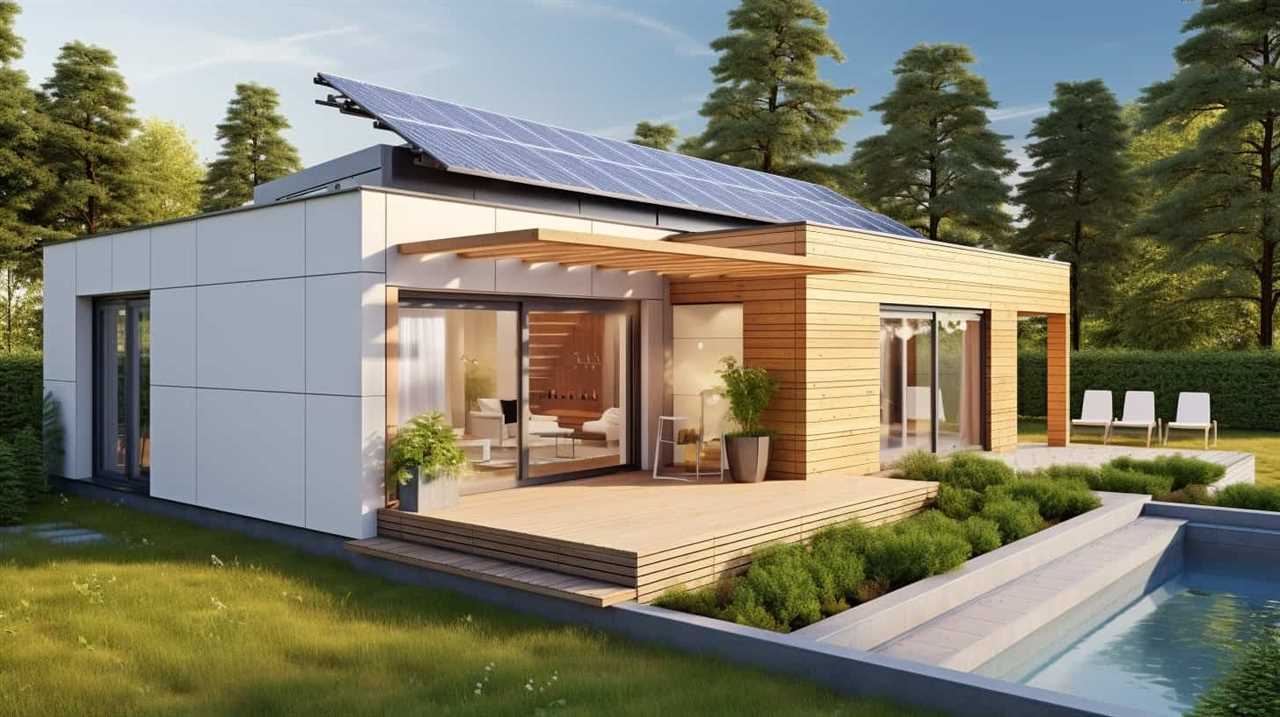
Energy Saving Tips: Heat pumps are highly efficient in converting energy to heat, resulting in lower energy consumption and reduced utility bills. By utilizing renewable energy sources such as air, water, or geothermal heat, they can provide efficient heating and cooling without relying heavily on fossil fuels.
Long-Term Savings: While the initial cost of installing a heat pump may be higher compared to traditional heating and cooling systems, the long-term savings are substantial. With their high energy efficiency, heat pumps can help homeowners save on energy costs over the lifespan of the system.
Reduced Carbon Footprint: By reducing energy consumption, heat pumps contribute to a greener and more sustainable environment. They produce fewer greenhouse gas emissions, helping to mitigate climate change and preserve natural resources.
Enhanced Comfort: Heat pumps offer precise temperature control, ensuring consistent comfort throughout the year. With their ability to both heat and cool, they provide year-round climate control, eliminating the need for separate heating and cooling systems.
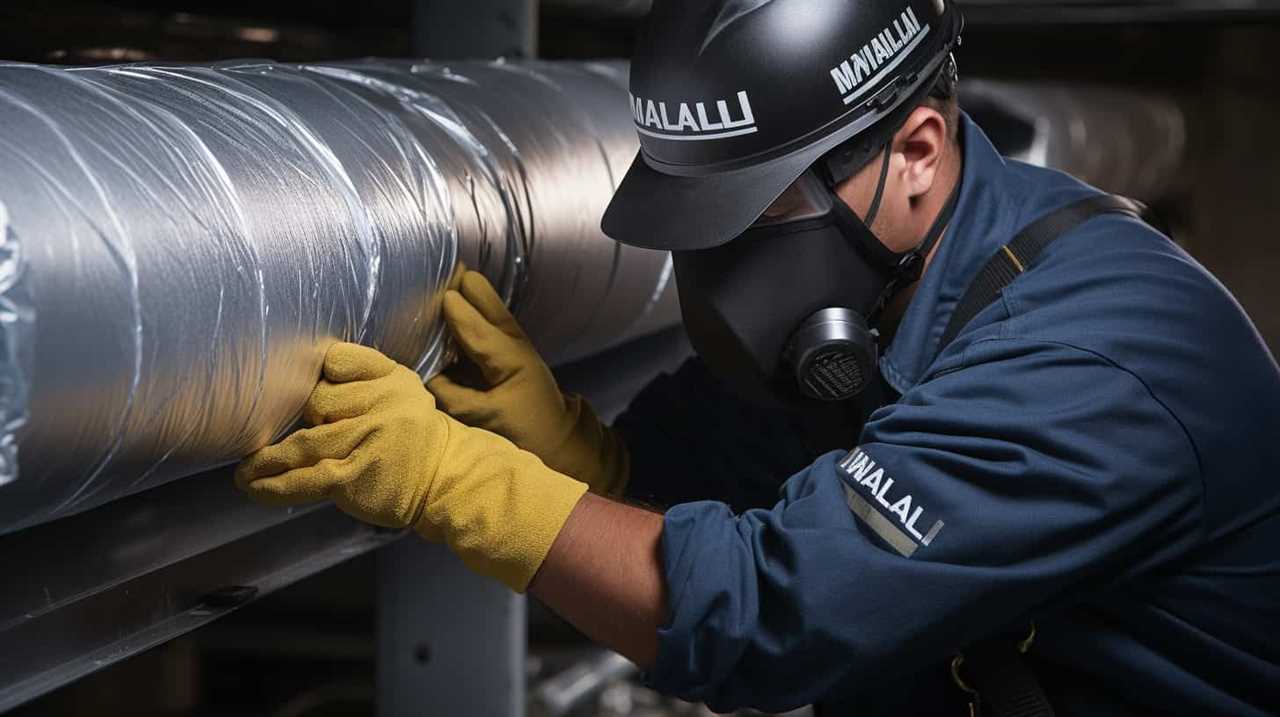
Cost-Saving Features
One of the key cost-saving features of heat pumps is their ability to significantly reduce energy consumption and lower utility bills. This is achieved through their high energy efficiency and ability to transfer heat rather than generate it.
Heat pumps use electricity to move heat from one location to another, rather than relying on combustion or resistance heating. This means that for every unit of electricity used, heat pumps can produce two to three units of heat.
This results in reduced energy consumption and lower utility bills, making heat pumps a cost-effective solution for residential climate control.
To determine the exact cost savings and return on investment, a cost analysis can be conducted, taking into account factors such as the initial cost of the heat pump system, installation costs, and estimated energy savings over time.

How Heat Pumps Provide Efficient Heating and Cooling
Heat pumps provide efficient heating and cooling through their energy-saving benefits, year-round temperature control, and environmentally friendly heating.
By extracting heat from the air or ground and transferring it indoors, heat pumps can achieve high levels of energy efficiency, resulting in significant cost savings for homeowners.
Additionally, heat pumps can provide both heating and cooling capabilities, allowing for consistent and comfortable indoor temperatures throughout the year.
Furthermore, heat pumps utilize renewable energy sources, such as air and ground, reducing reliance on fossil fuels and minimizing environmental impact.
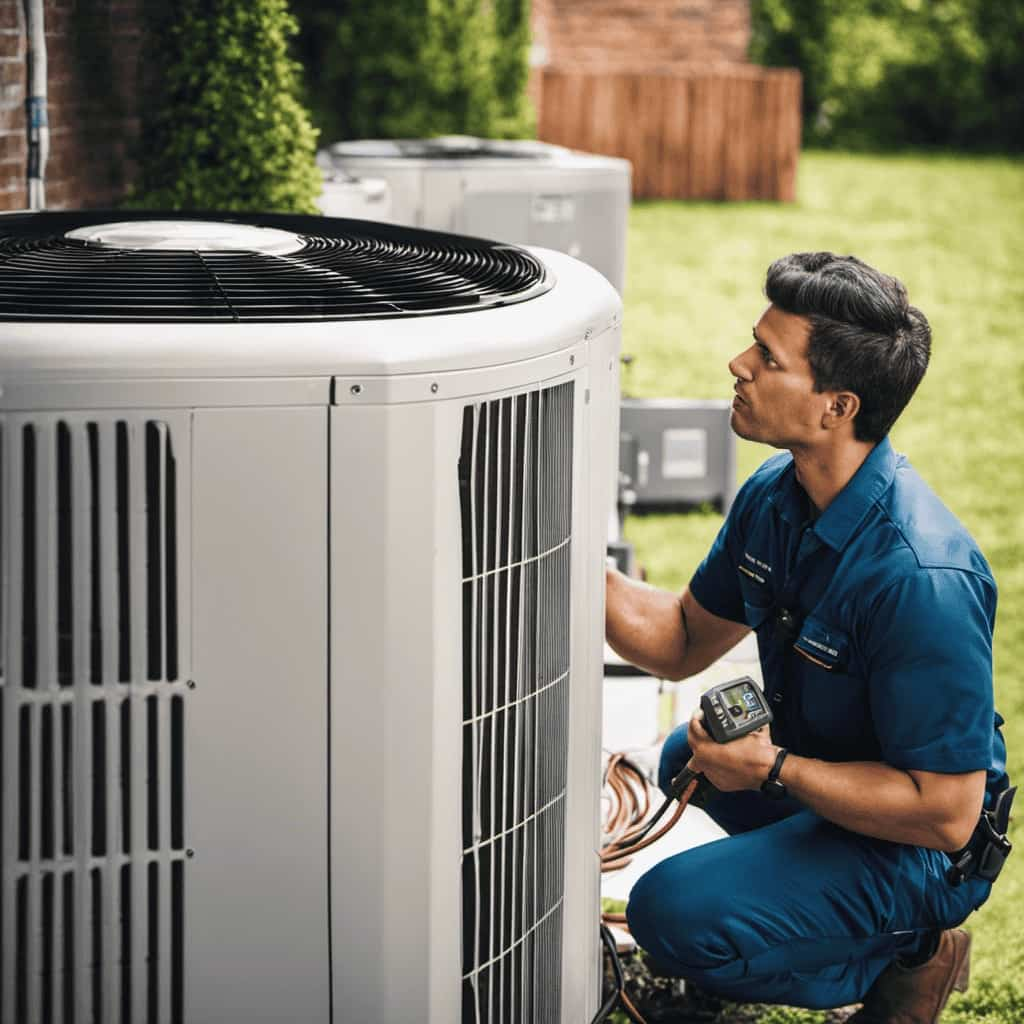
Energy-Saving Benefits
We can achieve significant energy savings by utilizing heat pumps for efficient heating and cooling. Heat pumps offer several energy-saving benefits and cost-saving features that make them an excellent choice for residential climate control.
Here are four key advantages of heat pumps:
High Efficiency: Heat pumps use electricity to transfer heat rather than generating it, resulting in higher energy efficiency and lower utility bills.
Dual Functionality: Heat pumps can provide both heating and cooling, eliminating the need for separate systems and reducing overall energy consumption.
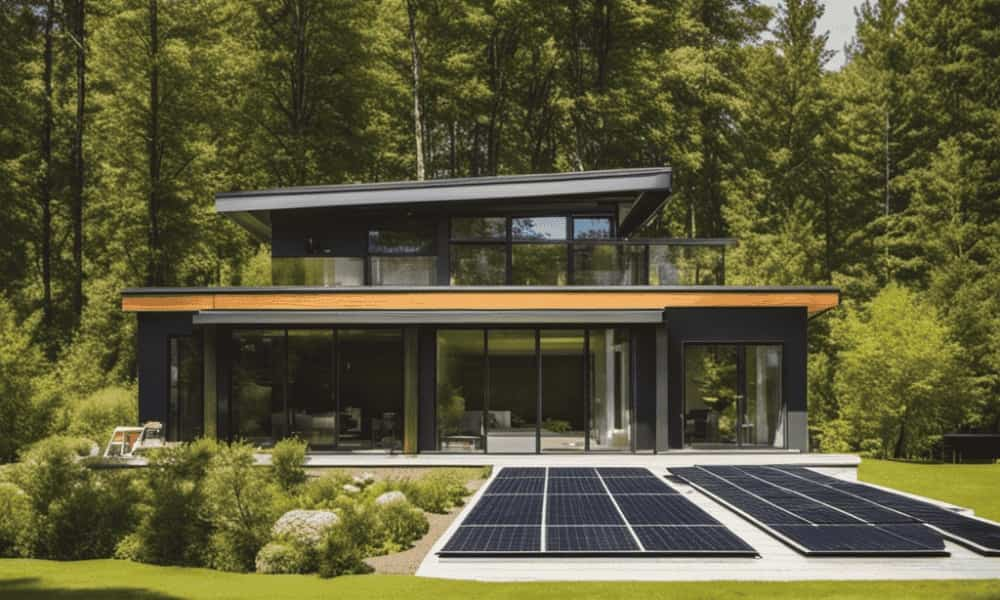
Heat Recovery: Some heat pumps can recover and reuse heat from one area of the home to heat another, further maximizing energy efficiency.
Smart Technology: Many heat pumps come with advanced features like programmable thermostats and smartphone integration, allowing for precise control and energy management.
By harnessing these energy-saving benefits, homeowners can enjoy cost-effective and environmentally friendly climate control.
Now, let’s delve into the next section on year-round temperature control.
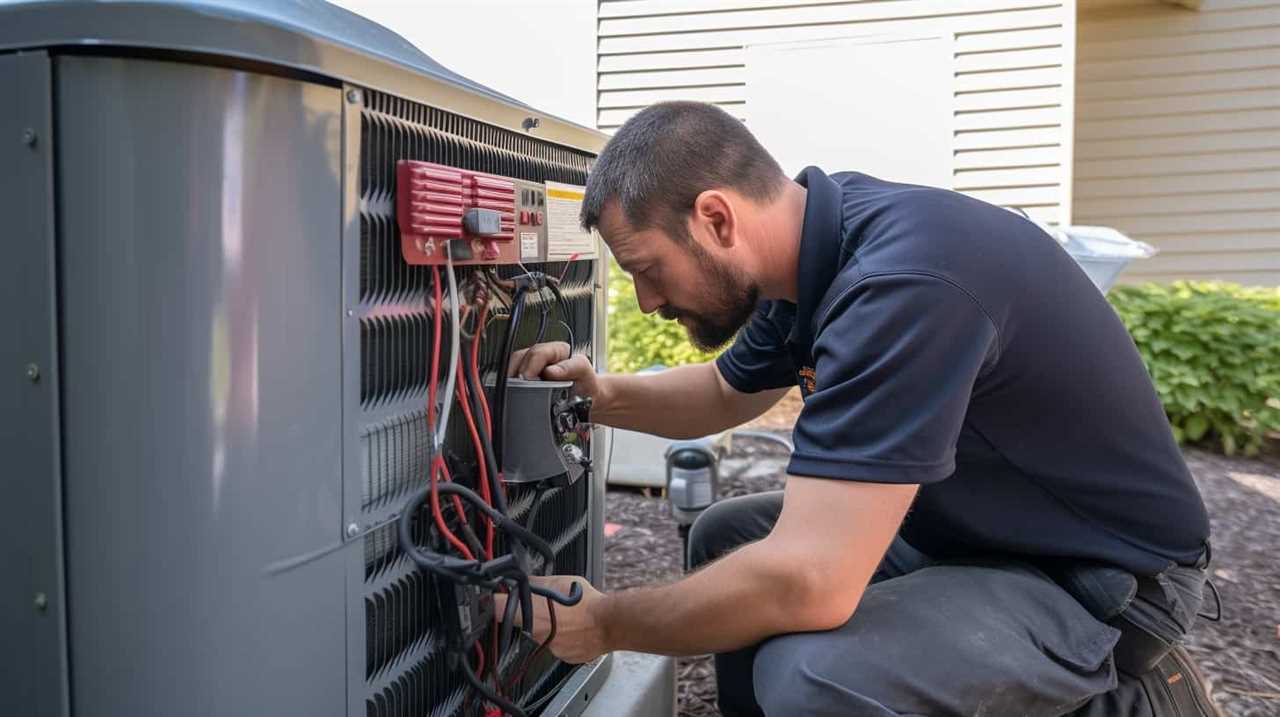
Year-Round Temperature Control
Let’s explore how heat pumps ensure efficient year-round temperature control in residential settings. Heat pumps are an excellent solution for achieving year-round comfort and temperature regulation in homes. They can both heat and cool a space by transferring heat from one area to another. This process is highly efficient and can save homeowners a significant amount of money on their energy bills.
To better understand how heat pumps provide efficient temperature control, let’s take a look at the table below:
| Heating Mode | Cooling Mode | Efficiency |
|---|---|---|
| Extracts heat from the outside air or ground | Transfers heat from the inside to the outside | Up to 400% |
| Uses electricity to power the compressor and fan | Uses electricity to power the compressor and fan | High |
| Provides consistent heating even in cold weather | Provides effective cooling in hot weather | Reliable |
As you can see, heat pumps are versatile and efficient, delivering year-round comfort and temperature regulation. Now, let’s transition to the next section, where we will discuss the environmentally friendly heating benefits of heat pumps.
Environmentally Friendly Heating
Our environmentally friendly heating solution with heat pumps efficiently maintains comfortable indoor temperatures while minimizing our carbon footprint. Heat pumps utilize renewable energy sources, making them one of the most sustainable heating options available.
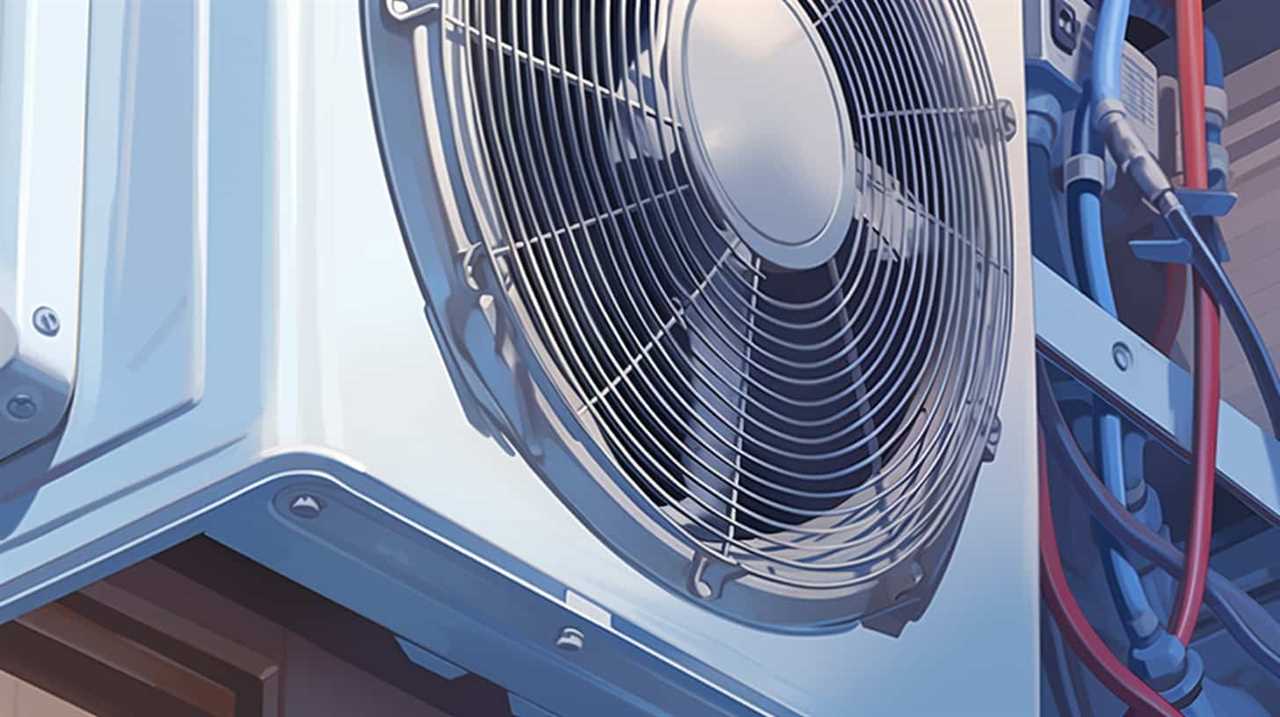
Here are four key benefits of using heat pumps for environmentally friendly heating:
Energy Efficiency: Heat pumps transfer heat from the air or ground, requiring less energy compared to traditional heating systems.
Lower Emissions: Heat pumps produce fewer greenhouse gas emissions, reducing our impact on the environment.
Versatility: Heat pumps can provide both heating and cooling, offering year-round comfort while minimizing energy consumption.
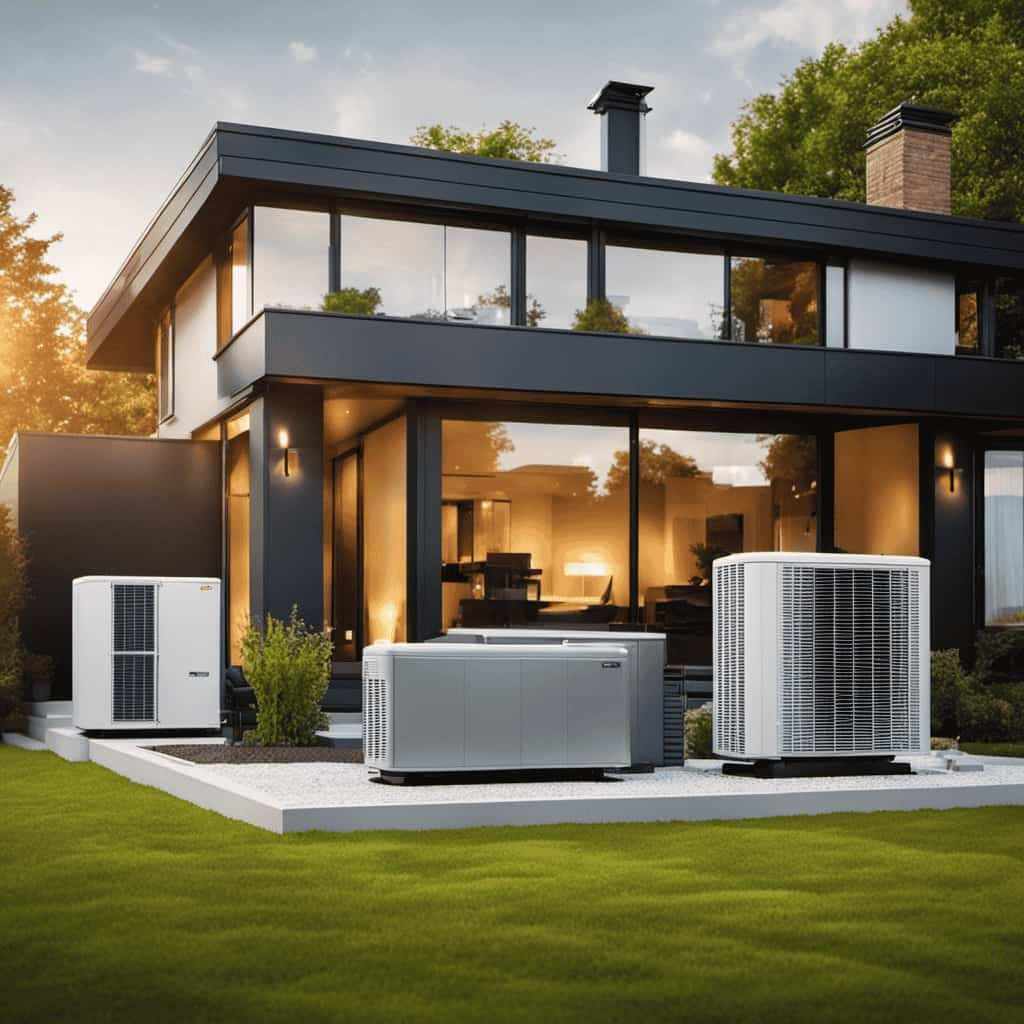
Cost Savings: By using renewable energy sources, heat pumps can help lower utility bills and decrease reliance on fossil fuels.
With their efficient operation and use of sustainable heating options, heat pumps are an excellent choice for those seeking environmentally friendly heating solutions.
The Different Types of Heat Pumps for Homes
There are three main types of heat pumps commonly used in residential homes. These types include air source heat pumps, ground source heat pumps, and water source heat pumps. Each type has its own unique features and benefits, making them suitable for different environments and needs. To help you understand the differences between these types of heat pumps, take a look at the table below:
| Type of Heat Pump | Description |
|---|---|
| Air Source Heat Pump | Extracts heat from the outdoor air and transfers it inside the home. It is cost-effective and easy to install. |
| Ground Source Heat Pump | Utilizes the heat stored in the ground to warm up the home. It is highly efficient but requires a larger installation space. |
| Water Source Heat Pump | Extracts heat from a water source, such as a lake or a well. It provides consistent and reliable heating but may require additional plumbing work. |
Considering the different heat pump brands and heat pump installation costs, it is essential to determine which type of heat pump best suits your specific requirements. In the next section, we will explore the factors to consider when choosing a heat pump to assist you in making an informed decision.

Factors to Consider When Choosing a Heat Pump
When choosing a heat pump, it’s important to consider factors such as the size of your home, the climate of your region, and your budget. These factors will help determine the appropriate size and type of heat pump for optimal efficiency and comfort.
Here are some key factors to consider:
Size: The heat pump should be sized correctly for your home to ensure efficient heating and cooling. A professional assessment of your home’s heating and cooling needs is essential.
Climate: The climate of your region plays a crucial role in selecting a heat pump. Different heat pumps are designed to perform optimally in specific temperature ranges, so consider the average temperature and weather conditions in your area.
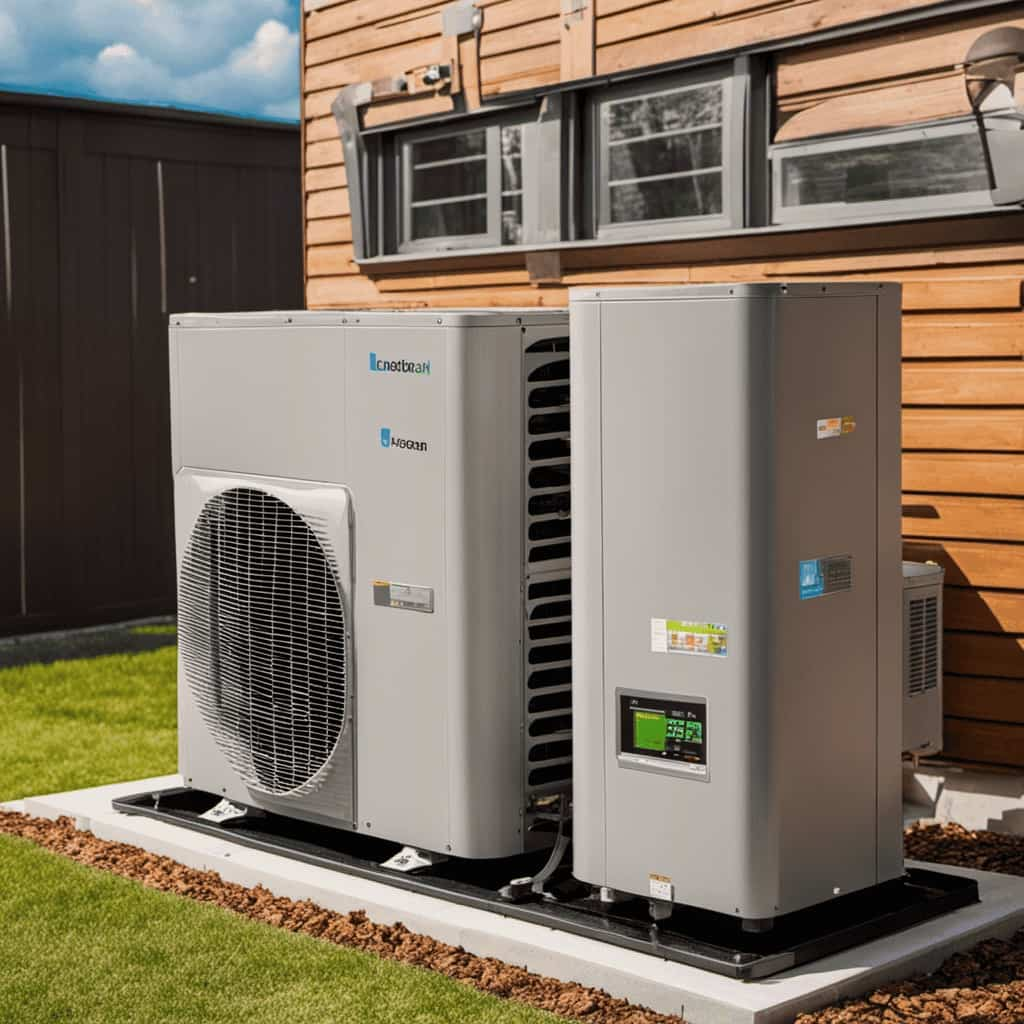
Budget: Determine your budget for heat pump installation and maintenance. Consider the initial cost of the heat pump, as well as any ongoing maintenance and energy costs.
By carefully considering these factors, you can choose a heat pump that’s the right fit for your home and ensures efficient performance and comfort.
Regular heat pump maintenance will also help prolong the lifespan and efficiency of your system.
Installation Process and Considerations for Heat Pumps
When it comes to installing heat pumps for residential climate control, there are two key points to consider: efficient sizing guidelines and proper maintenance practices.
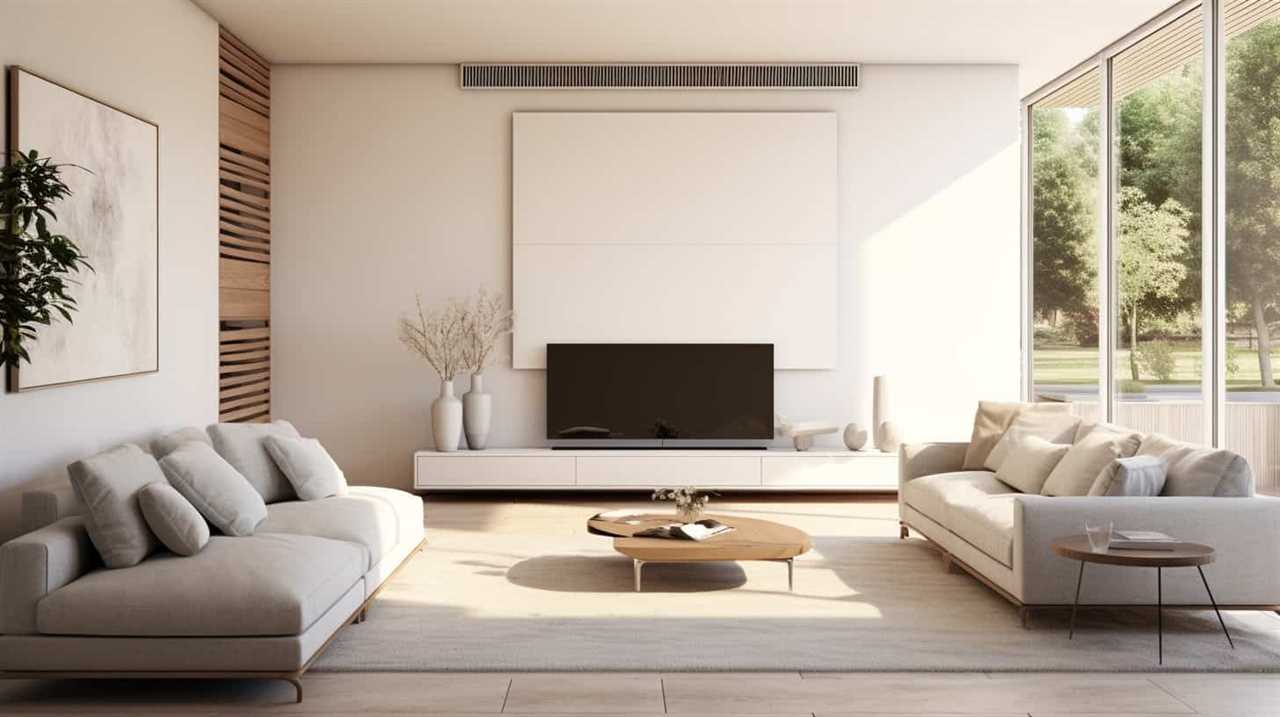
Efficient sizing guidelines ensure that the heat pump is the right size for the space it will be installed in, maximizing its energy efficiency and performance.
Proper maintenance practices are necessary to keep the heat pump running smoothly and to prolong its lifespan.
These considerations are crucial for ensuring optimal performance and longevity of the heat pump system in residential settings.
Efficient Sizing Guidelines
We can achieve efficient sizing for heat pumps by following proper installation processes and considering important factors. To ensure optimal performance and energy efficiency, here are some key guidelines to keep in mind:
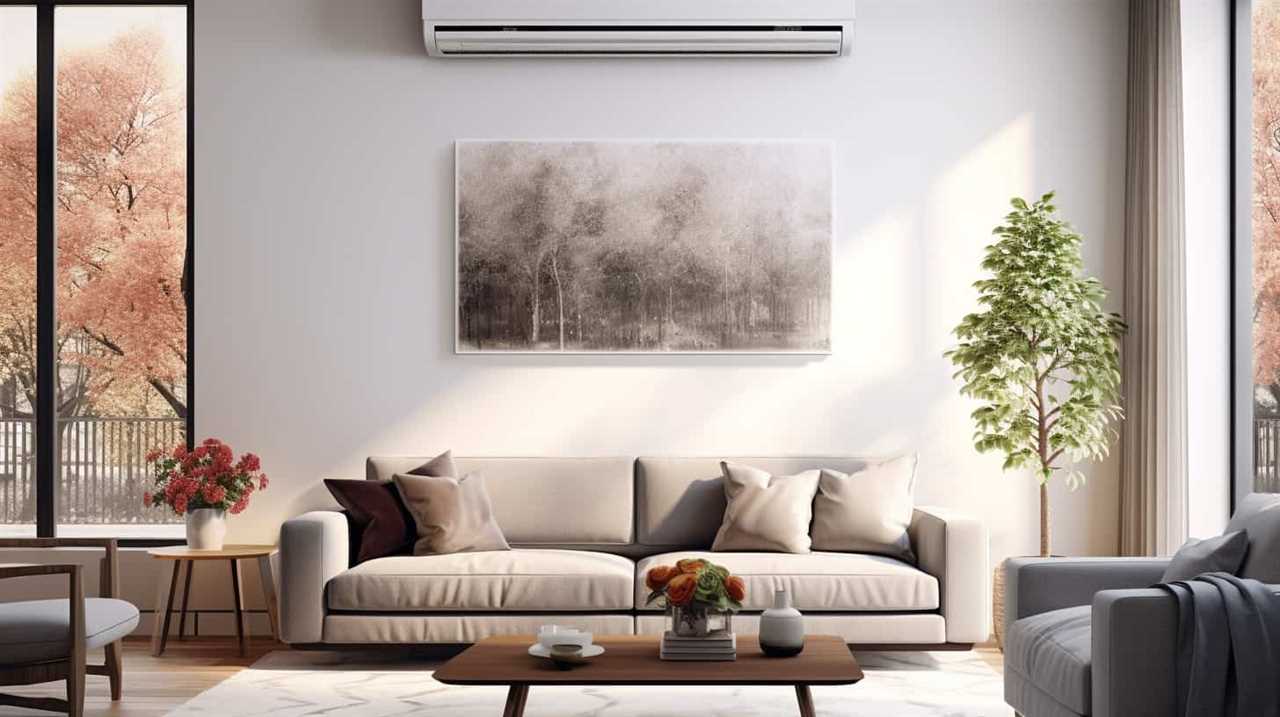
Conduct a thorough load calculation to determine the appropriate size of the heat pump for your home.
Consider the climate zone and insulation levels in your area to select the right capacity and efficiency rating for the heat pump.
Properly size the ductwork to ensure efficient airflow and distribution throughout the house.
Regularly maintain and clean the heat pump to enhance its longevity and efficiency.
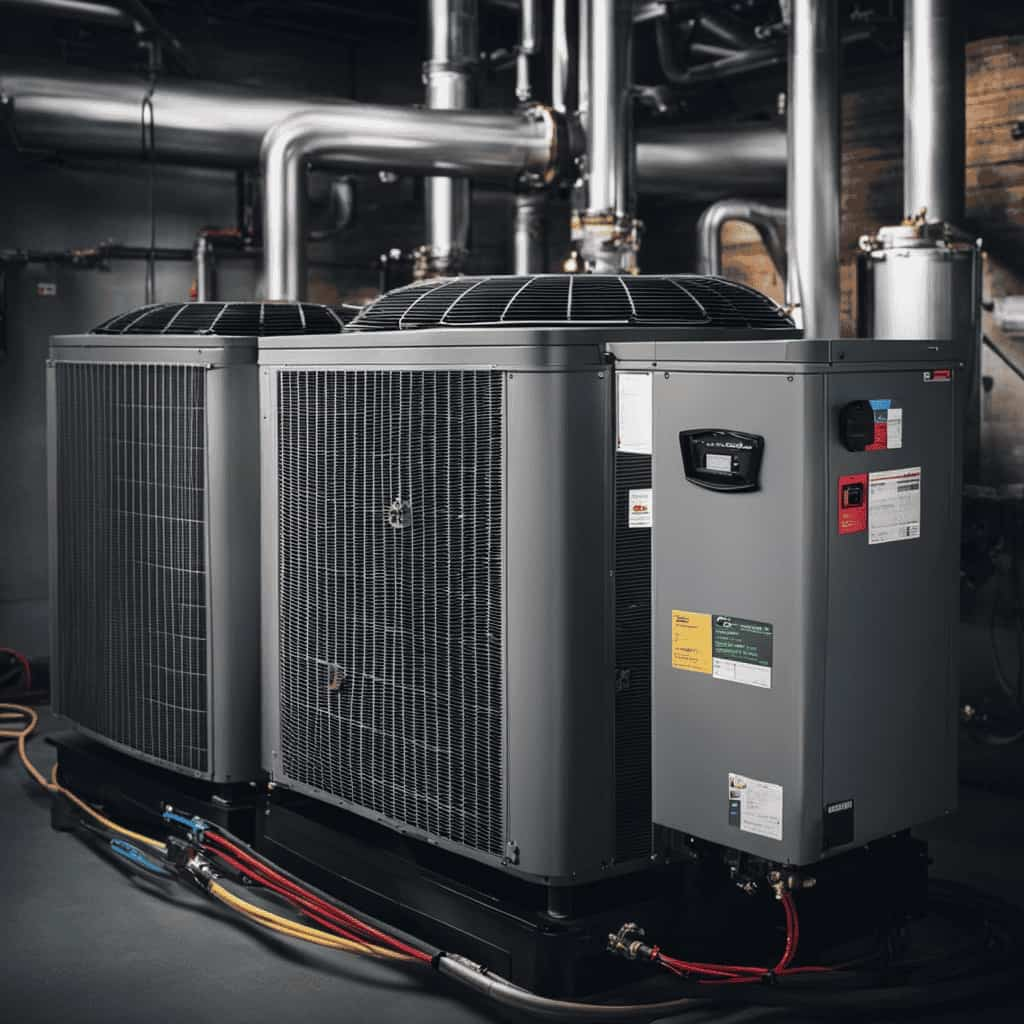
By adhering to these guidelines, you can maximize the energy-saving potential of your heat pump while enjoying a comfortable living environment.
Remember to consult with a qualified HVAC professional for an efficient installation process and additional energy-saving tips tailored to your specific needs.
Proper Maintenance Practices
To ensure optimal performance and longevity of our heat pumps, it’s important to implement proper maintenance practices during the installation process and consider important factors.
Regular maintenance routines should be established to keep the heat pump in its best shape. This includes cleaning or replacing air filters, inspecting and clearing the outdoor unit of any debris, and ensuring proper airflow.
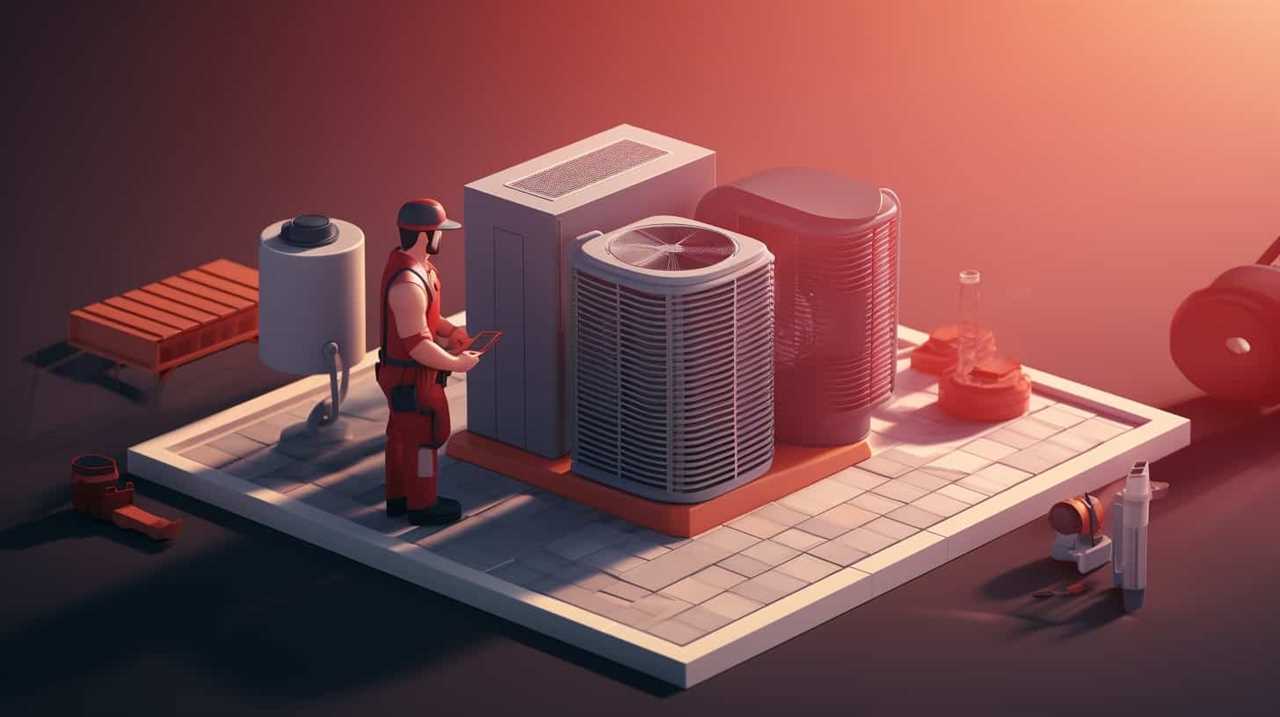
Troubleshooting techniques should be employed to identify and address any potential issues. These may include checking the thermostat settings, inspecting electrical connections, and monitoring refrigerant levels.
By following these maintenance practices, homeowners can prevent potential problems, improve energy efficiency, and extend the lifespan of their heat pump system.
Moving forward, let’s explore the importance of maintaining and caring for your heat pump system to ensure its continuous performance and comfort.
Maintaining and Caring for Your Heat Pump System
Our heat pump system requires regular maintenance and care to ensure optimal performance and longevity. To keep our heat pump running smoothly, there are several key maintenance practices that we should follow:
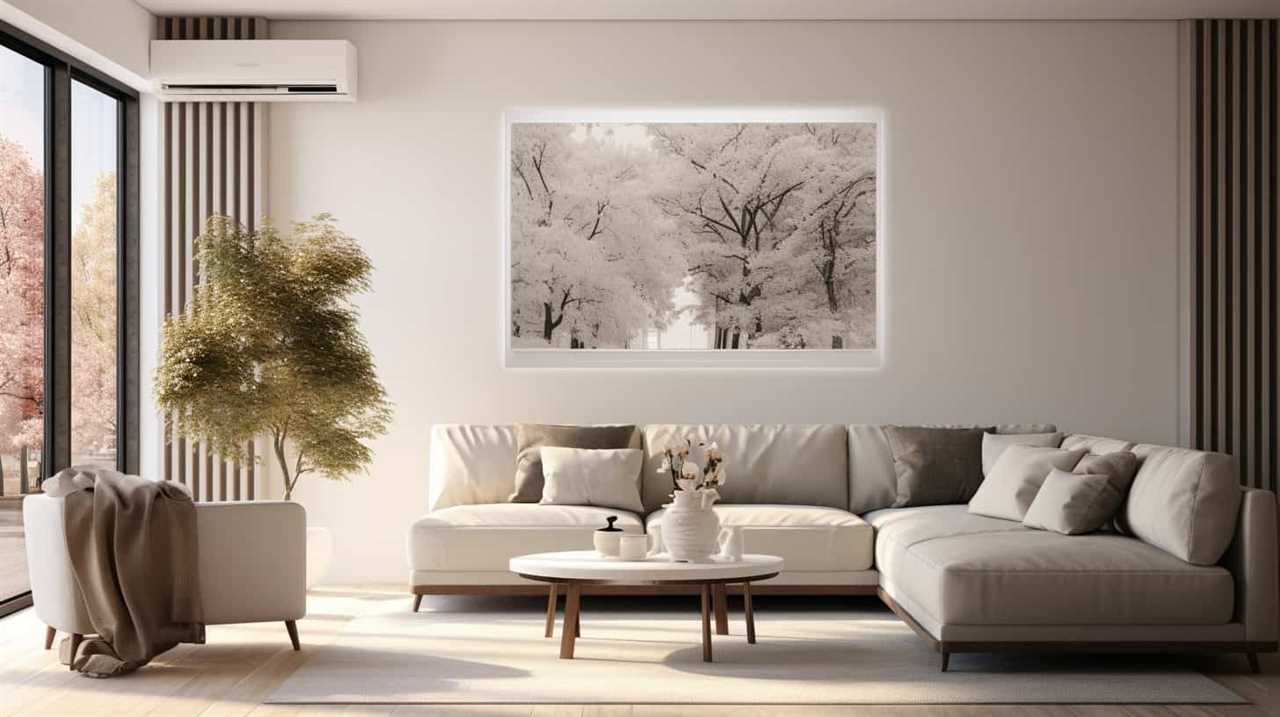
Regularly clean the air filters: Dirty filters can restrict airflow and reduce the efficiency of the heat pump. Cleaning or replacing the filters every 1-3 months is recommended.
Clear the outdoor unit of debris: Leaves, dirt, and other debris can block the airflow and hinder the heat transfer process. Regularly inspect and clean the outdoor unit to keep it free from obstructions.
Check and clean the coils: Over time, the coils can accumulate dirt and dust, reducing their effectiveness. Inspecting and cleaning the coils annually will help maintain the heat pump’s efficiency.
Schedule professional maintenance: Regular maintenance by a qualified technician is essential. They can inspect the entire system, detect any issues, and perform necessary repairs or adjustments.
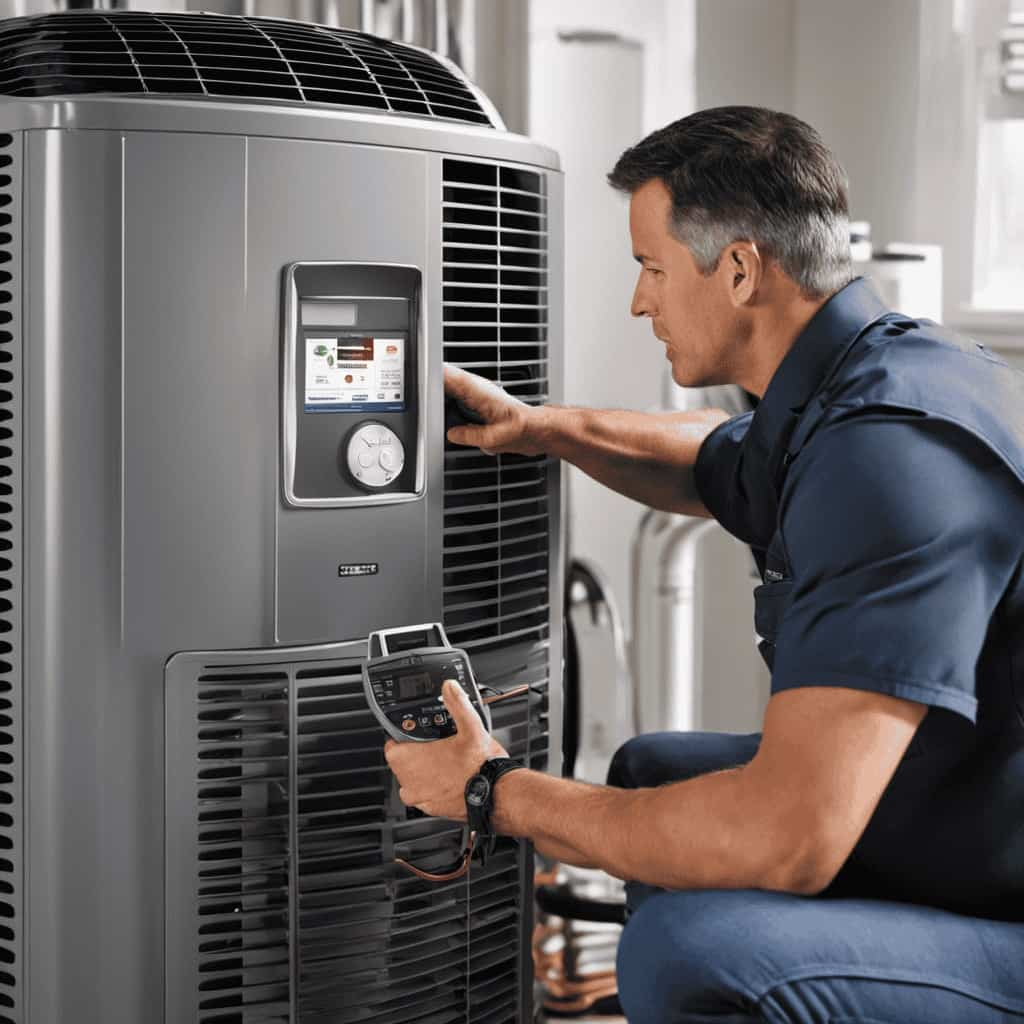
Energy Efficiency and Cost Savings With Heat Pumps
Using heat pumps for residential climate control can lead to significant energy efficiency and cost savings. Heat pumps are an energy-saving technology that extracts heat from the air or ground and transfers it into a building to provide heating and cooling. Compared to traditional heating and cooling systems, heat pumps can achieve higher energy efficiency ratings, resulting in reduced energy consumption and lower utility bills.
Additionally, heat pumps have a lower environmental impact compared to systems that rely on fossil fuels. An environmental impact analysis shows that heat pumps produce fewer greenhouse gas emissions and contribute to a cleaner and more sustainable environment.
Benefits of Residential Climate Control Using Heat Pumps
Heat pumps offer numerous benefits for residential climate control. They’re cost-effective solutions that provide both comfort and environmental benefits. Here are four key advantages of using heat pumps:
Energy Efficiency: Heat pumps are highly efficient in heating and cooling homes, consuming less energy compared to traditional heating and cooling systems. This results in lower utility bills and reduced carbon footprint.

Versatility: Heat pumps can both heat and cool your home, eliminating the need for separate heating and cooling systems. They can also be used for water heating, further enhancing their functionality.
Long Lifespan: Heat pumps are built to last, with an average lifespan of 15-20 years. This makes them a reliable and durable option for residential climate control.
Improved Indoor Air Quality: Heat pumps use filters to remove dust, pollen, and other allergens from the air, resulting in improved indoor air quality and a healthier living environment.
Understanding the benefits of heat pumps lays the foundation for addressing common issues and troubleshooting with these systems.

Common Issues and Troubleshooting With Heat Pump Systems
Sometimes, heat pump systems can experience common issues that require troubleshooting. It’s important to be aware of these issues and have some troubleshooting techniques in mind to address them effectively.
One common malfunction is when the heat pump fails to heat or cool the space adequately. This could be due to a low refrigerant charge, a faulty compressor, or a malfunctioning thermostat.
Another issue is when the heat pump constantly turns on and off, known as short cycling. This can be caused by a dirty air filter, a malfunctioning thermostat, or an incorrectly sized heat pump.
Additionally, a heat pump may produce unusual noises or emit strange odors, indicating underlying problems.

By familiarizing ourselves with these common malfunctions and troubleshooting techniques, we can effectively address any issues that may arise with our heat pump systems and ensure optimal performance.
Transitioning into the subsequent section, let’s explore how upgrading and optimizing your residential climate control system can further enhance its efficiency and effectiveness.
Upgrading and Optimizing Your Residential Climate Control System
To maximize our residential climate control system’s efficiency and effectiveness, we should consider upgrading and optimizing it. Here are some upgrading options and energy-saving tips to help improve the performance of your system:
Install a programmable thermostat: This allows you to set temperature schedules based on your daily routine, ensuring energy isn’t wasted when you’re away from home.

Upgrade to a high-efficiency heat pump: Newer models are designed to consume less energy while still providing optimal heating and cooling.
Improve insulation: Properly insulating your home reduces heat loss or gain, allowing your system to work more efficiently.
Regular maintenance: Schedule annual maintenance to clean and inspect your system, ensuring it operates at its peak performance.
Frequently Asked Questions
What Are the Potential Drawbacks or Disadvantages of Using Heat Pumps for Residential Climate Control?
Potential limitations and drawbacks of using heat pumps for residential climate control include higher upfront costs, reliance on electricity, and the need for regular maintenance. However, they offer energy efficiency, versatility, and environmentally friendly heating and cooling options.

Can Heat Pumps Be Used in All Climates and Regions?
Heat pumps are efficient and suitable for various climates. They can provide both heating and cooling, making them a versatile choice. However, their effectiveness may vary in extreme temperatures, so it’s important to consider regional climate conditions.
How Do Heat Pumps Compare to Traditional Heating and Cooling Systems in Terms of Cost?
When comparing the cost of heat pumps to traditional heating and cooling systems, we found that heat pumps offer greater energy efficiency, resulting in lower long-term costs for homeowners.
Are There Any Government Incentives or Rebates Available for Installing a Heat Pump System?
Government incentives and rebates are available for installing heat pump systems. They can help offset the initial cost and make the investment more affordable. It’s important to research and take advantage of these programs to maximize savings.
What Are the Key Factors to Consider When Sizing a Heat Pump for a Residential Property?
When sizing a heat pump for a residential property, key factors to consider include the size of the space, insulation levels, climate, and the desired temperature range. Proper sizing ensures optimal performance and energy efficiency.
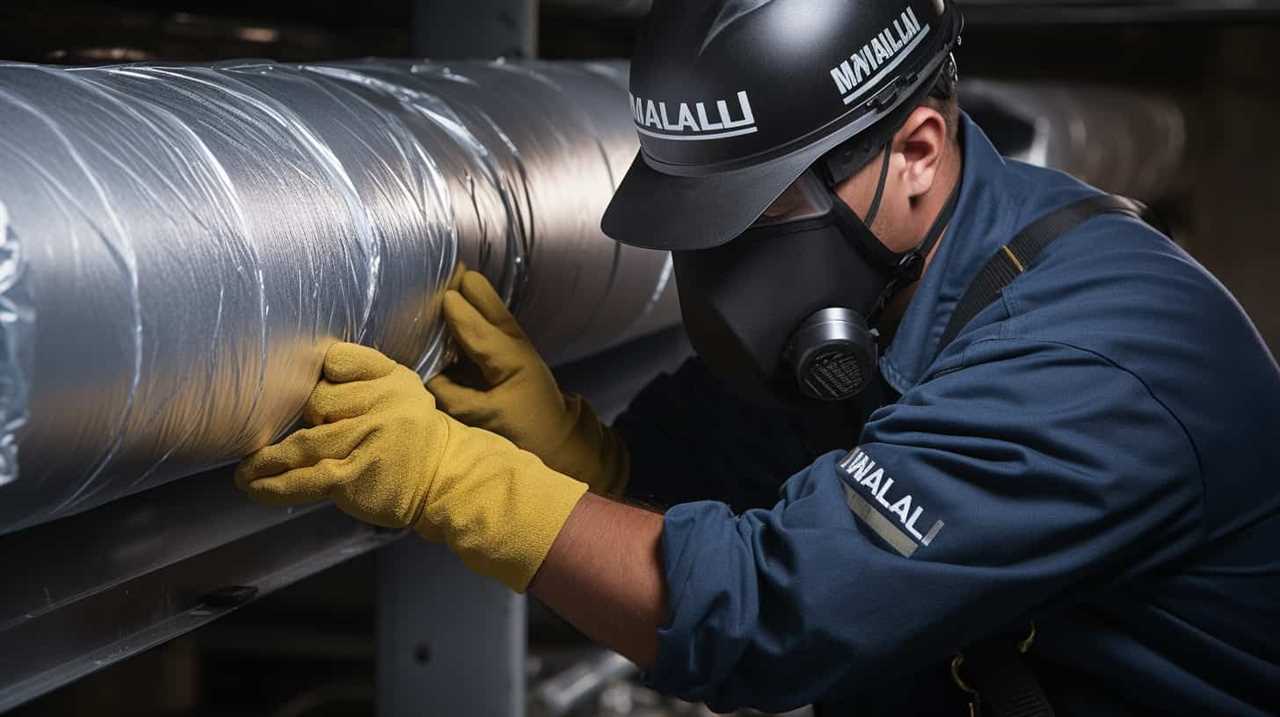
How Can I Master Residential Climate Control with Heat Pumps?
Residential heat pump control is essential for mastering climate control at home. By understanding the functionality and features of heat pumps, you can efficiently regulate the temperature and optimize energy usage. By monitoring the thermostat, adjusting settings, and scheduling temperature changes, you can achieve personalized comfort while saving on energy bills. Mastering residential climate control with heat pumps ensures a cozy and efficient living environment.
Conclusion
In conclusion, residential climate control using heat pumps is an efficient and cost-effective solution for heating and cooling homes.
By utilizing the power of alliteration, we can emphasize the benefits of this system, such as energy efficiency, cost savings, and comfort.
With various types of heat pumps available, homeowners can choose the best option for their specific needs.
From understanding the basics to troubleshooting common issues, upgrading and optimizing your residential climate control system is a smart choice for a comfortable and sustainable home.
